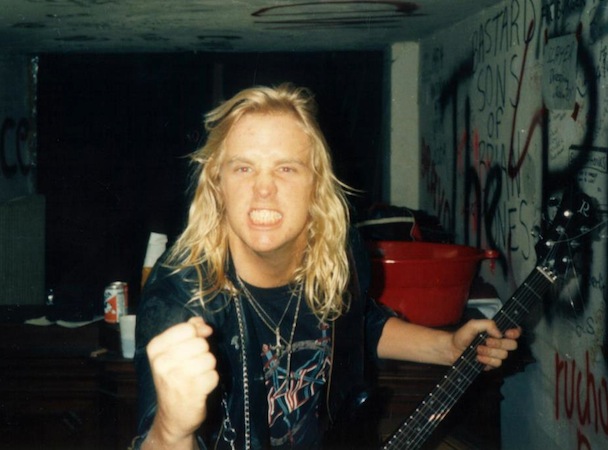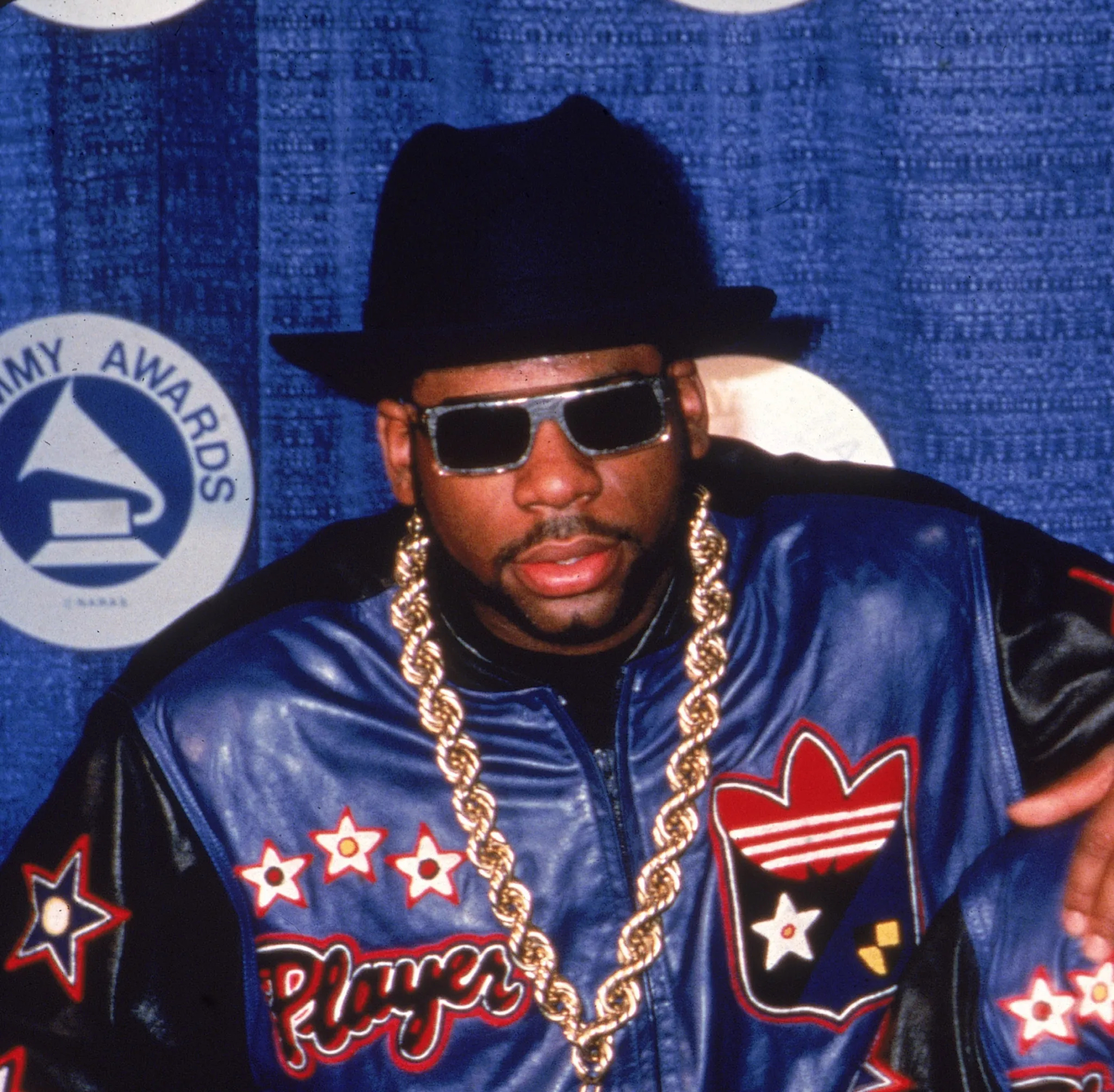Every music fan I know has at least one story about the first time they heard that album. The one that tore the roof off. The one that changed the way they thought about the art form.
Virtually all of these stories take place before the narrator reached the age of 20. You hear music differently as a kid. As an adult, you interpret everything you hear through a thick filter of context and expectations. As you soak up more information about musicians and genres, your mind closes — you gradually lose your ability to be surprised or shocked by music.
But when you're really young, your mind is free of all that clotted information. Music goes straight to your gut.We cherish these early listening experiences because we get so few of them, and because they can change the course of our lives forever.
For me, Slayer's Reign in Blood was that album. I first heard it at age 13 on a Boeing 737, seated next to a stranger on a night flight. I remember being stunned by the way the music overpowered the jet engines that roared just outside my window. I remember the woman next to me shifting irritably in her seat as I added volume with an increasingly liberal hand. I remember the album crashing — literally, with a peal of thunder — to a halt, after what felt like about five minutes. And I remember hitting ‘play' again. SLAYER!
Reign In Blood may well be the perfect metal album. It is a stark, utilitarian work, like a combat knife: simple, deadly, perfectly balanced, and designed for mass production. It remains my yardstick for sheer musical aggression to this day. Every rock fan should listen to it at least once. If you haven't heard it, stream it here. It won't take long.
I am happy that I heard Reign In Blood when I did because I had no frame of reference for it. Slayer's music does not want to be dissected; it wants to dissect you. It set me on the path to all-consuming metal obsession, as it has done for many others. Thousands — maybe millions? — of people have listened to Reign In Blood in their early teens and felt reality flickering to its racing tempos.
Jeff Hanneman, the guitarist who wrote the vast majority of Reign in Blood, passed away last Thursday. He was 49.
///
Hanneman's passing is difficult to write about — because of its tragic circumstances, because of his relative youth, and because so much has already been said about his life and work. Not since the death of Ronnie James Dio in 2010 has metal lost such a towering figure. In the United States, thousands awoke last Friday morning to the sound of Hanneman's stringy riffage on NPR's Morning Edition. He has been eulogized in countless metal and non-metal publications, including the New York Times, CNN, and the Guardian.
My favorite Hanneman obituary to date was written for Decibel by my friend and occasional Stereogum contributor Justin Norton, who said:
"Hanneman probably wouldn't want us to mourn long. Slayer's catalog is littered with songs about the certainty of death, the impermanence of the physical body and the fragility of the human mind. Nothing is for certain in their music, much like in life."
Too true. It's tempting to dwell on the sordid facts of Hanneman's last years — the spider bite and ensuing flesh-eating infection that crippled his picking arm (which, as Hanneman once quipped, was the sort of thing he'd write a song about); his gradual displacement in Slayer by Exodus guitarist Gary Holt; and the public speculation regarding the role of alcohol in the liver failure that killed him. But these sad biographical details are distractions from Hanneman's incredible music — the portion of his soul that transcended his flesh.
///
Jeff Hanneman was easily one of the greatest riff machines to ever strap on a guitar. Slayer was the most consistent and aggressive of thrash metal's Big Four, and though flamboyant co-shredder Kerry King is their public face, Hanneman was their beating heart. He wrote or co-wrote more than 70 percent of Slayer's 100-plus original songs. (By contrast, King has songwriting credits on a little more than 50 percent of that material.) His many solo composition credits include "Angel Of Death," "Raining Blood," "Die By The Sword," "Hardening Of The Arteries," "South Of Heaven," and "War Ensemble." Slayer was always a musical democracy, but Jeff Hanneman was its loudest voice.
It's impossible to overstate how loudly that voice has reverberated through the annals of metal history. Hanneman was an ardent fan of California's early-'80s hardcore scene, and he was among the first to incorporate its influence into heavy metal. Together with King, Hanneman developed the rhythm guitar vocabulary that would go on to define virtually all extreme metal to follow — a snarling, gnashing sound that only just remains on the friendly side of the music/noise divide. Its ingredients: squirming chromatic melodies, scads of dissonant tritones, incessant speedpicking, and absurdly fast tempos — Reign In Blood, their fastest album, moves at well over 200 beats per minute for almost its entire duration. Hanneman and King may not have been the only guitarists of that era to combine these techniques, but thanks to Slayer's knack for compact songwriting, they were far and away the most popular; Reign In Blood is probably the most extreme album ever to go gold.
If you're not a big metal listener, it probably isn't clear just how fundamental these elements are to the genre as it exists today. To give you an idea: Since February, Stereogum has run three editions of The Black Market, which highlights the 15 best new metal songs released every month. Of the 45 songs we've spotlighted so far, I count just eight that don't employ some or all of these techniques.
Without Slayer, modern metal would sound utterly different, and without Jeff Hanneman, there would be no Slayer. This fact — not the circumstances of his death, nor his controversial lyrics, nor his Heineken-logo guitar — will be his enduring legacy.
///
Alan Smith, another colleague of mine over at Invisible Oranges, wrote the following in a brilliant live review of a Hanneman-less Slayer show in 2012:
Classical music privileges the composition over the performer. A great orchestra can elevate a composition to the sublime, but so can another orchestra in another century. The composition is a monument that performers temporarily borrow. Slayer aren't of that tradition. They're part of metal, and thus part of rock music, and thus part of whatever "popular music" is. In popular music, the performer is inextricably tied to the composition. No matter how good a Judas Priest tribute band is, you'll always prefer the real thing, because it has Rob and Glenn and K.K. But for a moment this night … I wondered if Slayer were subject to the same rules. Must Slayer music die when Slayer hang it up? The recordings might live on, but the ritual doesn't. The parking lot filled with shouts of "Slayer," the timeless denim warriors, the change in state from fan observer to ritual participant — those will go away. I wish it weren't so.
Sadly, Slayer will probably carry on without Jeff Hanneman. Tom Araya and Kerry King have been touring without him for two years, and are now doing so without Dave Lombardo as well, thanks to a financial dispute. People will undoubtedly accuse King and Araya of cheapening Hanneman's memory, but I understand their decision. They are working musicians with mouths to feed.
And besides, Hanneman's memory needs no defense. He has entered the pantheon of bygone guitar greats, and his work speaks for itself. It speaks whenever some teenager carves a band logo into his own arm. It speaks whenever a metal guitarist disregards conventional notions of harmony and opts instead for whichever note sounds the most evil. It speaks whenever a lyricist searches the record of man's inhumanity to man for inspiration. And it speaks, loudest of all, whenever a wide-eyed kid hears Slayer for the first time and feels the bottom drop out of the world.
///
Doug Moore is a member of the NYC metal band Pyrrhon and a contributor to Stereogum's metal franchise The Black Market.






